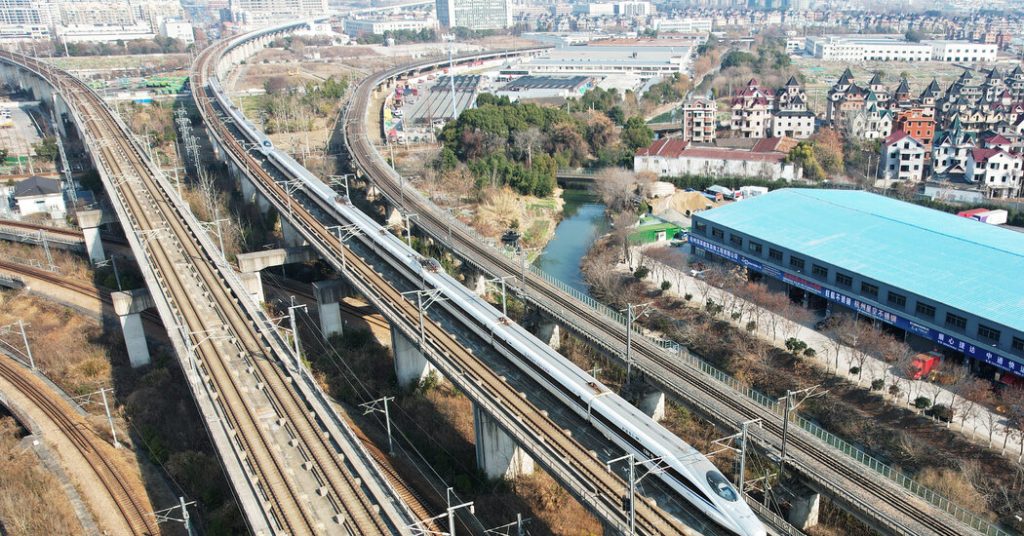China is facing rising costs and heavy debts related to its bullet train system, prompting the government to sharply increase fares on four major lines. This move is part of a broader push to raise prices for public services, which are heavily subsidized by local governments. Increasing prices can offset losses at state-owned enterprises and help stem falling prices in a slowing economy. China has already raised electricity charges for factories and is now targeting rail fares, a politically sensitive issue due to the symbolism of the bullet trains as a symbol of the country’s infrastructure prowess.
China’s bullet train network, which spans over 28,000 miles and connects major cities as well as smaller towns, has been a testament to the country’s ability to build massive infrastructure projects. However, the debt incurred to build the network has become a concern, with provincial and municipal governments becoming less able to subsidize transportation costs. Some of the older lines are now requiring more maintenance, as they were built hastily during the global financial crisis to create jobs. The fare increases, which will take effect in June, have sparked negative reactions on social media, especially given stagnant wages and declining real estate prices.
The peak fare increases will affect routes from affluent cities near the Yangtze River to less prosperous towns in central China. Second-class fares on the busiest route, between Beijing and Shanghai, have already seen multiple increases in recent years. Despite the fare hikes, China’s bullet trains remain more affordable compared to those in Europe, Japan, and the U.S. The increased prices aim to enable deeper discounts on off-peak tickets and slower trains, making rail travel more accessible to a wider range of passengers.
China’s bullet trains have become popular in major cities like Shanghai, leading to crowded train stations during peak travel periods. Platforms are being served by longer trains than originally planned, and the system continues to expand even as it struggles with operating profits. The high-speed rail lines have spurred the growth of new towns and cities along their routes, with many Chinese using them for weekly or daily commutes between low-cost areas and higher-paying jobs in larger cities. These dynamics highlight the impact of the bullet train network on China’s economy and society.
The Chinese government’s decision to increase rail fares on major bullet train lines reflects broader challenges related to rising costs and heavy debts in the country’s public services sector. This move, along with previous price increases for electricity and other services, aims to offset financial losses at state-owned enterprises and address falling prices amid slower economic growth. While the fare hikes have stirred controversy, they also aim to balance costs and access for passengers using the extensive high-speed rail network in China. As the country continues to prioritize high-tech manufacturing and exports, this shift in growth strategy may impact infrastructure investments and debt management in the long term.







